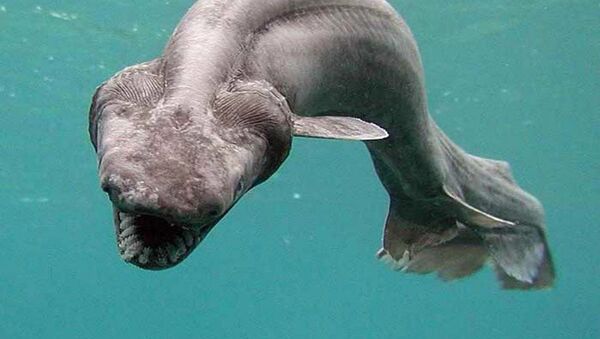Late last year, scientists from Alaska Pacific University discovered what they said was a new species of the world's largest octopus, which can weigh up to 150 pounds (about 68 kilograms).
The researchers explained that the "frilled giant Pacific octopus" has more than once been mistaken for the giant Pacific octopus, Enteroctopus dofleini, because the existence of the new species could not be visually confirmed.
Is this a giant Pacific octopus, or a frilled giant Pacific octopus? (Public Domain) —
— TUTUZ (@tutuz_news) 29 декабря 2017 г.
Of all the animals ke… pic.twitter.com/ToR0GS1WLu
Detected in the waters of Prince William Sound in Alaska, the new species has raised fleshy bumps on its skin and two white spots on its head.
Loch Ness Monster Copycat?
The year-end also saw the publication of a YouTube of video of what looked like a Loch Ness Monster-like creature.
The footage showed a head and part of the neck of the mysterious creature emerging from the Albanian section of the Great Prespa Lake, which the country shares with Greece and Macedonia.
A UK newspaper, the Mirror, reported that the video had been filmed near the Albanian tourist village of Pretor, where some locals continue to believe in the existence of the lake monster, while others insist that the creature is nothing but a giant catfish.
'Living Fossil'
In November, Portuguese fishermen managed to catch a rare frilled shark which was described by scientists as a "living fossil" and is believed to have remained unchanged over the past 80 million years.
This 1.5-meter-long fish moves like a snake and has more than 300 teeth that are as sharp as razors. The shark is thought by scientists to be a prototype of mythical sea monsters that are the traditional lore of sailors everywhere.
'Something Huge'
In October, former commercial fisherman Bjorn Dihle discovered the remains of "something huge" on a beach some sixty kilometers from Alaska's capital Juneau while kayaking.
Some experts who have been called to the site suggested that it may be the liver of a Pacific sleeper shark, something that is yet to be scientifically confirmed.
Fangtooth Snake-Eel?
In September, the remains of a fanged and apparently eyeless creature were tracked on the beach in Texas City, in the wake of Hurricane Harvey's wrath earlier that month.
Okay, biology twitter, what the heck is this?? Found on a beach in Texas City, TX. #wildlifeid pic.twitter.com/9IUuuL65qh
— Preeti Desai🌿 (@preetalina) 6 сентября 2017 г.
The pictures of the thick, serpent-like body with a tail and a row of razor-sharp teeth prodded Kenneth Tighe of the Smithsonian National Museum of Natural History to assume that it was most likely a fangtooth snake-eel.
Gigantic Squid
In July, the crew of the Cu Na Mara fishing boat managed to catch a giant squid during a trawl 240 kilometers (150 miles) off the coast of Ireland.
The 5.5-meter-long Architeuthis is rarely seen by humans, and can grow to a length of over 12 meters. Sightings of the species, thought to be the longest of all squid, date back to 1639 in Europe. However, it wasn't until 2004 that a giant squid was actually photographed alive in its natural habitat.
Stranded Boat-Like Monster
In May, the remains of a mysterious deep sea creature were discovered near the shore of Seram Island in Indonesia, shocking locals and prompting many of them to mistake the 15-meter-long monster for a stranded boat.
With Indonesia's Marine and Coastal Resources Management suggesting that it might be a whale, researchers are yet to complete lab tests to confirm this is true.

